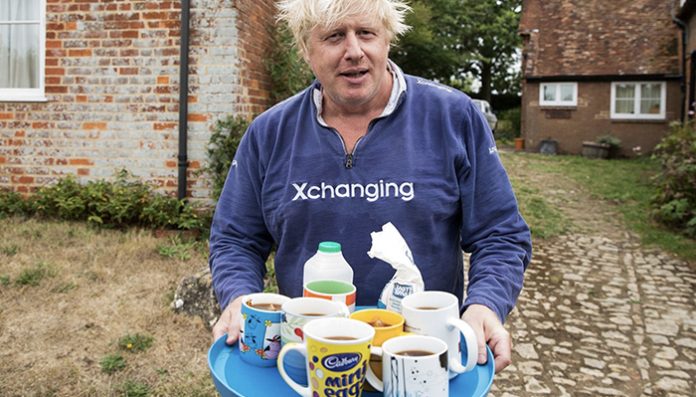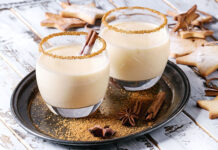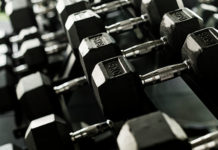Boris Johnson’s tea-making skills have been questioned after he was filmed pouring himself a cuppa in an election broadcast on Twitter.
The Prime Minister was criticized for not taking the tea bag out, adding milk with it still in and barely stirring the brew.
Some people even pointed out that the controversial technique could even lose the 55-year-old votes in the general election.
Mr Johnson responded to those who noticed how he takes his brew, saying:
“This really is how I make my tea… It lets it brew and makes it stronger.”
After the PM shared the four-minute video from Conservative Party HQ on his Twitter users rushed to give their thoughts on his tea-making methods with much pouring scorn on his efforts.
I can’t be the only one who didn’t listen to a word and solely focused on the tea? Firstly, no brewing time? Just banged in the milk? @RobertoWGB
tut tut.. Not just that, teabag removal non-existent and he nearly threw it everywhere towards the end. Are you even British @BorisJohnson #Tea
You put milk in your tea without taking the tea bag out first, you disgust me. @EltonMcManus
Never trust a man who makes a cup of tea and doesn’t remove the tea bag. Sociopath. @mbusby993
So how do you make the perfect cup of tea?
Dr Tim Bond, from the UK’s Tea Advisory Panel, and Ottilie Cunningham, tea and coffee buyer at Fortnum & Mason, give their expert-backed method for making the perfect cuppa.
Milk first or last?
Cunningham says it’s actually easier to do it afterwards “so you can see how much you’re adding”.
Bond agrees, adding you should wait until the tea bag is out of your cup before you add in the milk.
How hot should the water be?
Both experts agree black tea should be made with boiling hot water, although it needs to be freshly boiled. And you should never, reboil the same water.
“The golden rule is to always use freshly drawn water. The reason for this is that as the water boils, it loses oxygen in the bubbles – if you keep reboiling the same water, the tea will taste flat,” says Cunningham.
The rule changes if you’re making green tea with Cunningham suggested you let the water cool slightly – to around 85 degrees Celsius. The reason behind this is that boiling water can make green tea taste bitter.
What kind of cup do you use?
Size is based on preference, but it should always be fine china, says Cunningham. Turns out the colour of your tea vessel could have an influence on taste too.
Dr Stuart Farrimond, an expert in the science of tea making, told TV presenter Cherry Healey on BBC Two’s ‘Inside the Factory’ that research has shown that tea drunk from a red or pink mug will taste sweeter than from a white or blue one.
It’s all about psychology you see, and studies have revealed that saltiness is associated with the colours white and blue, while sweetness is associated with red and pink.
What kind of tea pot do you use?
Bond suggests using a glass tea pot in order so you can see the tea colour develop – however, he says any material is sufficient apart from an iron tea pot, which might cause the tea to react with the material and give it a bad taste.
How long should a tea bag brew?
While some simply waft a bag in the water, for others only a proper long brew will do, but what’s the optimum time to leave it? According to Cunningham you need at least three minutes to allow tea flavours to properly infuse.
Bond agrees three minutes is the lower limit for brewing, but some teas can take up to five. “All companies provide on-pack instructions designed to get the best out of their products,” he adds.
To sugar or not to sugar?
This depends on preference, says Cunningham, although it’s important to add sugar while tea is hot so it dissolves properly – however there is one school of thought which says you should never add sugar to your tea.
Filter (and forget about styrofoam)
Other top tea-making tips include always using a filter if you live in an area with hard water to prevent scum forming.
“What happens when you use hard water to make a cup of tea, is you sometimes get that scum on the top,” Dr Farrimond told BBC.
“What’s happening is some of the flavour compounds are reacting with the calcium and they form this scummy layer, so you’re actually losing flavour, the flavour is being lost in that scum.”
Filtering the water first will remove calcium and magnesium residue and stop the scum forming.
The biggest tea-making crime? Using a Styrofoam cup. Not only does it look pretty naff, but Styrofoam absorbs the flavour molecules which in turn reduces the tastiness of the tea.
Source: Yahoo Style Uk by Marie Claire Dorking










